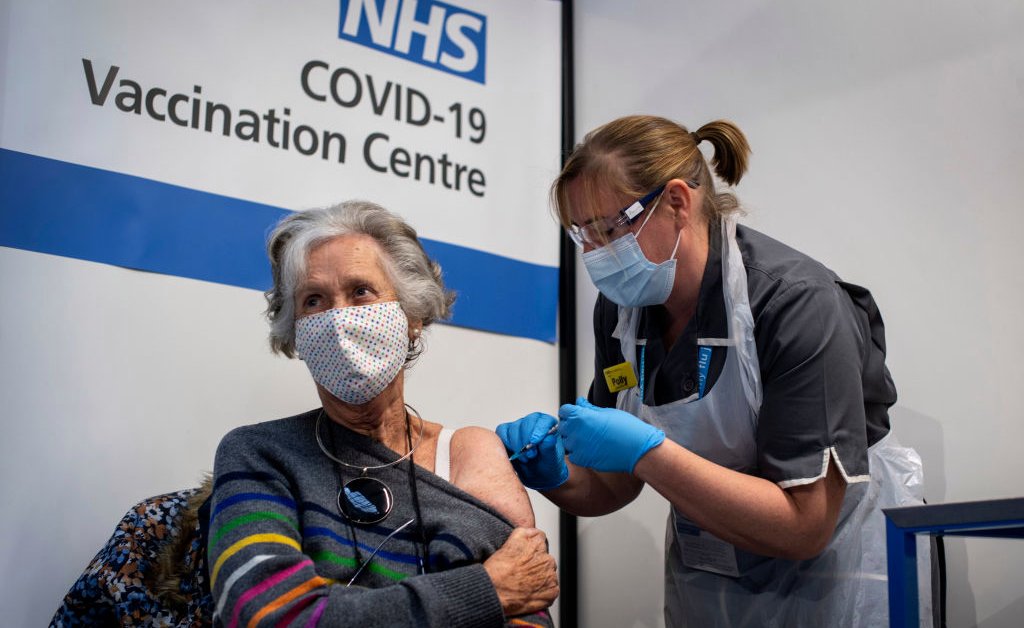I had my first Covid jab earlier this week. It was everything you would expect from the NHS when given the resources to get on with the job.

From the phone call from my GP practice the previous Friday to the visit to the vaccination centre, it was all very well organised. Staff were friendly, helpful and professional, offering information and reassurance as needed. Clearly, some of the people at the centre were volunteers: you could tell by their sense of enthusiasm at having the opportunity to help others. And everyone there was working to a common purpose, so there was a clear sense of team spirit in the air.
Including the mandatory 15 minute rest (and observation for any adverse reaction) after the jab, the whole process took 20-25 minutes from start to finish. A fine example of public service at its best.
Public Service Ethos
Back in 2016, I wrote a blog post called In Praise of Public Service Values. In it, I explain how certain public services should never be – or should never have been – privatised. The main reason I gave then was the commonality of purpose all the way through the public sector, from the top management through to the front-line staff. In a privatised service, there is some discontinuity between profit-maximising leaders and service-oriented junior staff. Priorities get blurred; messages get mixed.
I now recognise there is a second, powerful reason why public services should remain in the public sector. I have recently watched the 2020 Reith Lectures given by former Bank of England chief Mark Carney. In his first lecture, he speaks of the “moral hazard” of “commodification”. Experiments show that, in carrying out an activity with a clear moral purpose, people are disincentivised by financial gain. People are more effective when morality, rather than money, drives their actions.
A further danger of commodification is what Carney calls “flattening” of moral value or civic virtue. Once an activity is described solely in terms of money, in profit or loss, something of real human value gets lost. Good deeds become mere transactions; cynicism and boredom can creep in.
Government Failure to Learn
We should have learnt from the lessons of the 2012 London Olympics, when Serco’s failure to recruit sufficient “Olympic greeters” led to the army to be called in to help out. But this government didn’t learn. Perhaps the most deadly of the consequences of the failure to learn from past mistakes are the repeated failures over lockdowns: too late to impose, too soon to relax restrictions. Johnson and his gang are far too ready to listen to the bayings of the death squad of Tory backbenchers grotesquely misnamed the “Covid Recovery Group”.
It is extraordinary to think that, over 11 months into the pandemic, the Government has still not properly implemented border controls for people entering the UK. Failure to learn lessons from other countries’ approaches to quarantine and its enforcement is particularly ironic when “control of borders” was a key rallying cry of the prominent Leavers now running the country.
Private Sector Failure
But a major government failure was to hand Test and Trace to the private sector, and specifically to friends of the Cabinet members – corruption on an eye-watering scale. Compare and contrast the spectacular failure of the £22bn privatised “NHS Test and Trace”. (The link in the last sentence leads to a page which lists 22, mainly private sector, companies involved: Serco and Sodexo are perhaps the most significant.) I’m not clear whether the list of 22 includes all the companies whom Serco and Sodexo have subcontracted work to.
I believe that one key underlying problem in using the private sector was the failure to use vital public health expertise in its design. The private sector dominated thinking was based upon the model of running call centres (for which the private sector has plenty of experience). What was overlooked was the public health expertise in the subtleties of the interpersonal relationships and sensitivities in cold calling people about health issues. Many of us see our health as an intensely personal matter and there was an understandable reluctance for “cold called” people to engage.
Finally, here’s the BMA’s view from last September giving the medical professions view on the many and varied shortcomings in over-reliance on the private sector.
Called to Account?
As for accountability, my best estimate currently is this. Of the 110, 000 deaths to Covid so far, somewhere between 50,000 and 80,000 could have been avoided through better governance and decision-making. It would be a betrayal to those who died and their grieving families if this stark analysis were somehow forgotten. To govern is to be accountable.
As the country’s mood lifts, from fear and despair to hope and positive expectation of an end to the pandemic, I have a concern that that public opinion will fail to call to account the actions of this government over the past year. Repeated failure and disastrously poor decision-making vastly exceed the one thing we seem to have got right: vaccination, thanks to the “real” NHS. It would be grossly unfair for Johnson and co to be let off the hook over their lamentable performance overall.